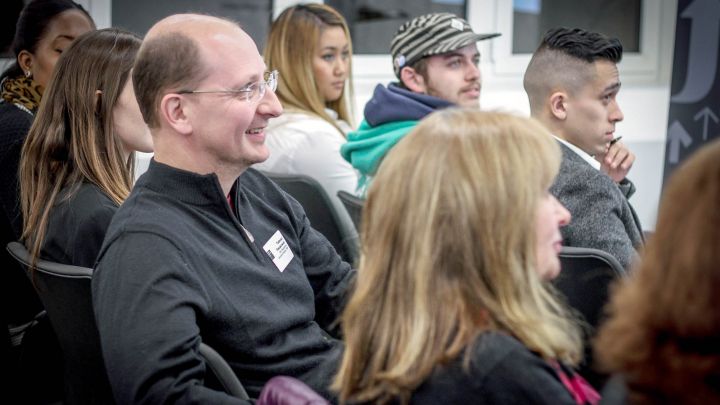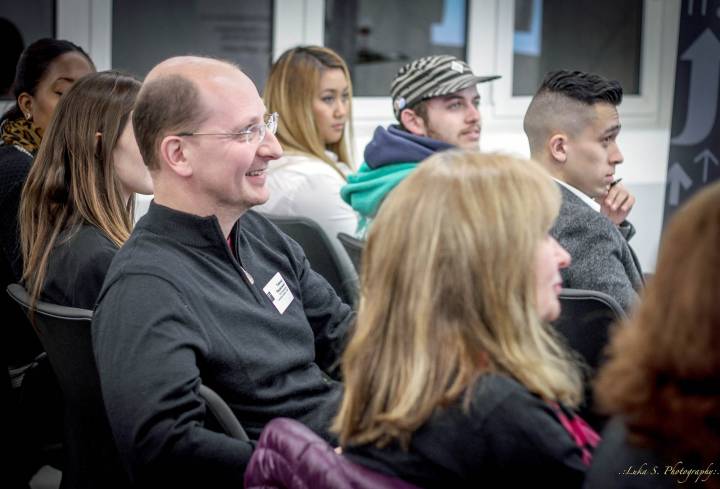Economics research seminar with Roberto Veneziani and Marc Lavoie

This event has taken place
View all upcoming events at Kingston University.
Time: 4.00pm - 6.00pm
Venue: Room 3013, John Galsworthy building, Penrhyn Road campus, Penrhyn Road, Kingston upon Thames, Surrey KT1 2EE
Price:
free

Please join us for this event as part of the Economic Department Research Seminar Series.
Presentations
'Education and 'Human Capitalists' in a Classical-Marxian Model of Growth and Distribution' by Roberto Veneziani (Queen Mary University of London)
A simple classical-Marxian model of growth and distribution is developed in which education transforms low-skilled workers into high-skilled ones and in which high-skilled workers save and hold capital, therefore receiving both high-skilled wages and profit income. We analyze the implications for class divisions, growth and distribution, of the transformation of the modern capitalist economy from one in which the main class division is between capitalists who own capital and workers who only receive wage income into one in which education and human capital play a major role. We show than an expansion in education can have a positive effect on growth but by altering the distribution of income rather than by fostering technological change, and that it yields some changes in income distribution and the class structure of the capitalist economy, but need not alter its fundamental features.
'Convergence in a neo-Kaleckian model with endogenous technical progress and autonomous demand growth' by Marc Lavoie (University of Paris 13)
This paper introduces technical progress along the lines of the Kaldor-Verdoorn law within a neo-Kaleckian model of growth and distribution that incorporates the Sraffian supermultiplier mechanism. The key features of the model include the interactive effects of endogenous technical progress, the non-capacity creating demand component that grows at an exogenous rate, and the Harrodian investment function. It turns out that, whereas the model converges towards the normal rate of capacity utilization, the main tenets of the Keynesian model are still valid in the long run as well as in the short run in the sense that all of the average rates of accumulation, capacity utilization and technical progress are lower during the traverse after the propensity to save or the share of profits goes up. The conditions under which the productivity regime can be wage-led are examined, and the possible effects of an exogenous technical shift are also discussed.
Speakers
Roberto Veneziani holds a PhD in Economics from the London School of Economics and Political Sciences. He is Reader in Economics at the School of Economics and Finance, Queen Mary University of London. His research interests include topics of liberal principles of distributive justice, axiomatic exploitation theory, macrodynamic models of growth and distribution, egalitarian principles, distribution of resources between generations, sustainable development, and normative principles in economics. He is also interested in the history of economic thought and in political economy from a mathematical perspective.
He has published articles in a number of outlets in economics (including the Journal of Economic Theory, the Economic Journal, the Journal of Mathematical Economics, Social Choice and Welfare, the Journal of Public Economic Theory, the Cambridge Journal Economics), political science (including the Journal of Theoretical Politics), and philosophy (including Philosophy of the Social Sciences). He has refereed for more than thirty different journals in economics, political science and philosophy.
He is a co-founder of the Analytical Economy Workshop, which has met annually since 2007, and sits on the Editorial Board of Metroeconomica, the Journal of Economic Surveys, and Studies in Microeconomics.
Marc Lavoie holds a senior research chair from the University Sorbonne Paris Cité, located at the University of Paris 13 (CEPN). He is an emeritus professor from the University of Ottawa, where he has previously taught for 37 years. He is also a Research Fellow at the Macroeconomic Research Institute of the Hans Böckler Foundation in Düsseldorf and a Research Associate at the Broadbent Institute in Toronto. Lavoie has published over 200 articles or book chapters in a wide variety of fields, in particular macroeconomics and monetary economics, but also in growth theory, pricing theory and the economics of ice hockey. With Wynne Godley he has written Monetary Economics: An Integrated Approach to Money, Income, Production and Wealth (2007) and with Mario Seccareccia, he has authored the Canadian edition of the Baumol and Blinder first-year textbook (2009). He has recently edited Wage-led Growth: An Equitable Strategy for Economic Recovery (2013, with E. Stockhammer), which deals with the effects of rising income inequality and the drift towards lower wage shares, and also In Defense of Post-Keynesian and Heterodox Economics (2013, with F. Lee). His latest work is Post-Keynesian Economics: New Foundations (2014) - an exhaustive account of post-Keynesian economic theory which extends and updates his previous books, Foundations of Post-Keynesian Economic Analysis (1992) and Introduction to Post-Keynesian Economics (2006).
Booking is essential to attend this event.
For further information about this event:
Contact: Antoine Godin
Email: A.Godin@kingston.ac.uk
Directions
Directions to Room 3013, John Galsworthy building, Penrhyn Road campus, Penrhyn Road, Kingston upon Thames, Surrey KT1 2EE:
